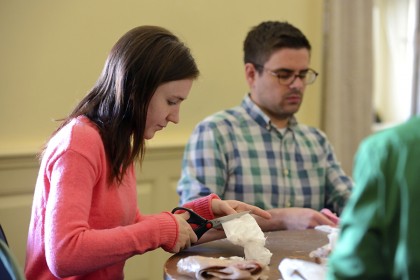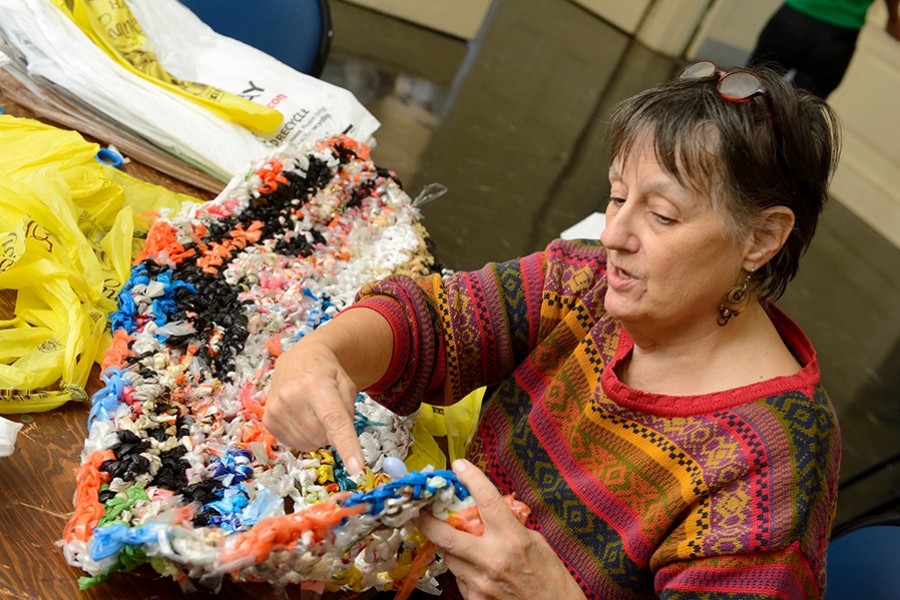Homewood Recycling celebrated America Recycles Day on Tuesday by transforming plastics bag into "plarn." A handful of faculty, staff, and students stopped by Johns Hopkins University's Shriver Hall to drop off plastic grocery bag donations or learn how to create balls of plastic yarn.
Louise Gregg, a parishioner of St. Vincent de Paul Church, will use the plastic yarn to make sleeping mats for the homeless. Her church owns a park in Baltimore where homeless people often sleep or congregate.

Image caption: Jessica Billeter and other volunteers create yarn out of donated plastic bags.
Image credit: Will Kirk / Johns Hopkins University
Each mat, which is roughly the size of a cot, is composed of hundreds of plastic bags. When placed under a sleeping bag or blanket, the mats keep out moisture, add comfort, and provide an extra layer between the sleeper and the cold ground, Gregg said.
Attendees formed an assembly line. Some JHU community members cut out loops from plastic bags, while others connected the loops into a long strand—which would eventually be rolled into a ball of "plarn."
Jessica Billeter, a senior economics and psychology major, said she sees a lot of frustration surrounding the recycling of plastic grocery bags in her job working for Homewood Recycling. The bags often end up in the trash or become litter.
"I came here because I think it's very exciting that we can actually turn something that is normally trash into something that is going to be useful to other people," Billeter said.
Although Homewood Recycling's main focus is to encourage waste reduction, the event provided a tangible way for community members to make a difference through recycling.
Leana Houser, the program's manager, said she received an overwhelming number of donations since announcing the event a week ago.
"There's such a glut of plastic bags out there … so it's kind of upsetting to see how much we collected, but also exciting to have collected so much," Houser said. "I think [the event] just makes people realize that when you put something in a bin, that's not the end; that's actually the beginning."
Posted in Happenings, Community
Tagged community, sustainability, recycling








